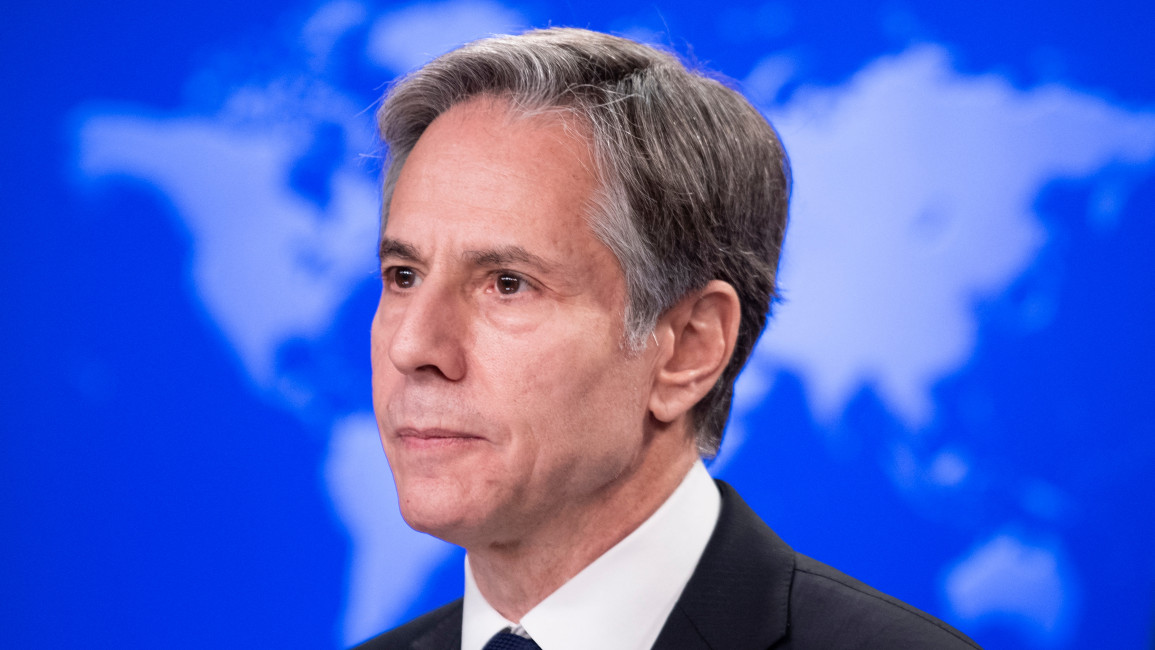America's ambivalent commitment to international justice
On the recent fifth anniversary of an international arbitral tribunal's ruling that rejected Chinese claims over the South China Sea, US Secretary of State Antony Blinken implored China to respect the decision. But Blinken's lecture to China's leaders raises the thorny issue of America's own approach to the international rule of law under President Joe Biden.
True, the removal of sanctions that President Donald Trump's administration had imposed against high officials of the International Criminal Court was almost universally welcomed around the world. Although the United States is not a member of the ICC and its objections to investigations of alleged US war crimes in Afghanistan predate Trump, the sanctions were an unprecedented and outrageous attack on the functioning of an important global institution.
"The Biden administration has not moved with the speed many think is warranted to reverse its predecessor's attack on international dispute settlement"
On other fronts, however, the Biden administration has not moved with the speed many think is warranted to reverse its predecessor's attack on international dispute settlement. The Trump administration, for example, used its veto power to block all appointments to the World Trade Organization's Appellate Body, which eventually became inquorate when prior appointees' terms ended. Robert Lighthizer, the US Trade Representative under Trump, justified this extraordinary action as a response to adverse WTO rulings, claiming "judicial overreach."
While some of the legal judgments in question are indeed open to criticism, the Appellate Body has often decided in favour of the US in cases against China, among others, and has upheld US conservation and environmental policies. And yet, six months into his term, the Biden administration has failed to articulate any constructive process for restarting appellate review.
Walking away from an international court because the US lost a case did not begin, however, with Trump and the WTO Appellate Body. When Nicaragua prevailed against the US in 1985 at the International Court of Justice in a suit over US aid to the Contras, the Reagan administration withdrew recognition of the ICJ's jurisdiction (which had already been qualified by onerous conditions). In other cases, too, the US accepted the ICJ's authority to settle disputes under a specific treaty, but reversed course when it lost a case.
The US criticised the ICC for opening an investigation into alleged war crimes in the Palestinian territories and voiced support for Israel. https://t.co/shd7iyHrWy
— The New Arab (@The_NewArab) March 4, 2021
Now, however, the Biden administration sees fit to chastise other states for walking away from the decisions of international tribunals, as Blinken's dressing down of China shows. Fair enough: China's claims in the South China Sea affect the sovereignty and territorial integrity of at least a half-dozen countries. But one would expect that US leaders might at least reconsider their own sore loser strategy. Unfortunately, that is yet to happen.
Consider, again, the ICC. Despite removing sanctions, the Biden administration persists in adopting stances that undermine the court's legitimacy and effectiveness. For example, the official US position under Biden is that the ICC has no authority to investigate allegations of war crimes committed in the Israeli-Palestinian conflict. Palestine is an established State Party to the ICC; Israel is not. The mandate to investigate, including alleged offenses by Israelis, was upheld by a closely reasoned majority judgment of a chamber of the court, based on jurisdiction on Palestinian territory.
"One would expect that US leaders might at least reconsider their own sore loser strategy. Unfortunately, that is yet to happen"
One of the key principles of international law is a tribunal's authority to decide its own jurisdiction. Of course, the Biden administration may have reasons to question the political rationale for bringing the Israeli-Palestinian conflict to The Hague. But as a non-member of the ICC, the US has no business undermining the rule of law there, properly applied by the court's own institutions.
This does not mean that the Biden administration must push for the US to become a party to the ICC. But the ICC's own constitution, the Rome Statute, recognizes important roles for non-members, such as assisting with information and witnesses. Barack Obama's administration was sometimes prepared to offer such cooperation. Even President George W. Bush's administration cooperated with the ICC (in a case implicating then-Sudanese President Omar al-Bashir in atrocities in that country's Darfur region).
We are not advocating an uncritical US embrace of the existing system of global justice. Each of the tribunals mentioned here has its own shortcomings; none has perfect legitimacy. But the US urgently needs a systemic approach to the international rule of law, anchored in the values that Blinken, among other key US officials, routinely propounds around the world.
America stands to gain influence, or soft power, by engaging in constructive ways with international courts, instead of simply persisting with its old sore loser strategy by default. Appointing a Legal Adviser in the State Department (former Yale Law School Dean Harold Koh held the position under Obama) would be a good way for the Biden administration to begin developing a coherent approach to America's relationship with these vital institutions.
Robert Howse is Professor of International Law at New York University School of Law.
Follow him on Twitter: @howserob
Ruti Teitel is Professor of Comparative Law at New York Law School.
Follow her on Twitter: @rutiteitel
© Project Syndicate 1995–2021
Have questions or comments? Email us at editorial-english@alaraby.co.uk
Opinions expressed in this article remain those of the author and do not necessarily represent those of The New Arab.



